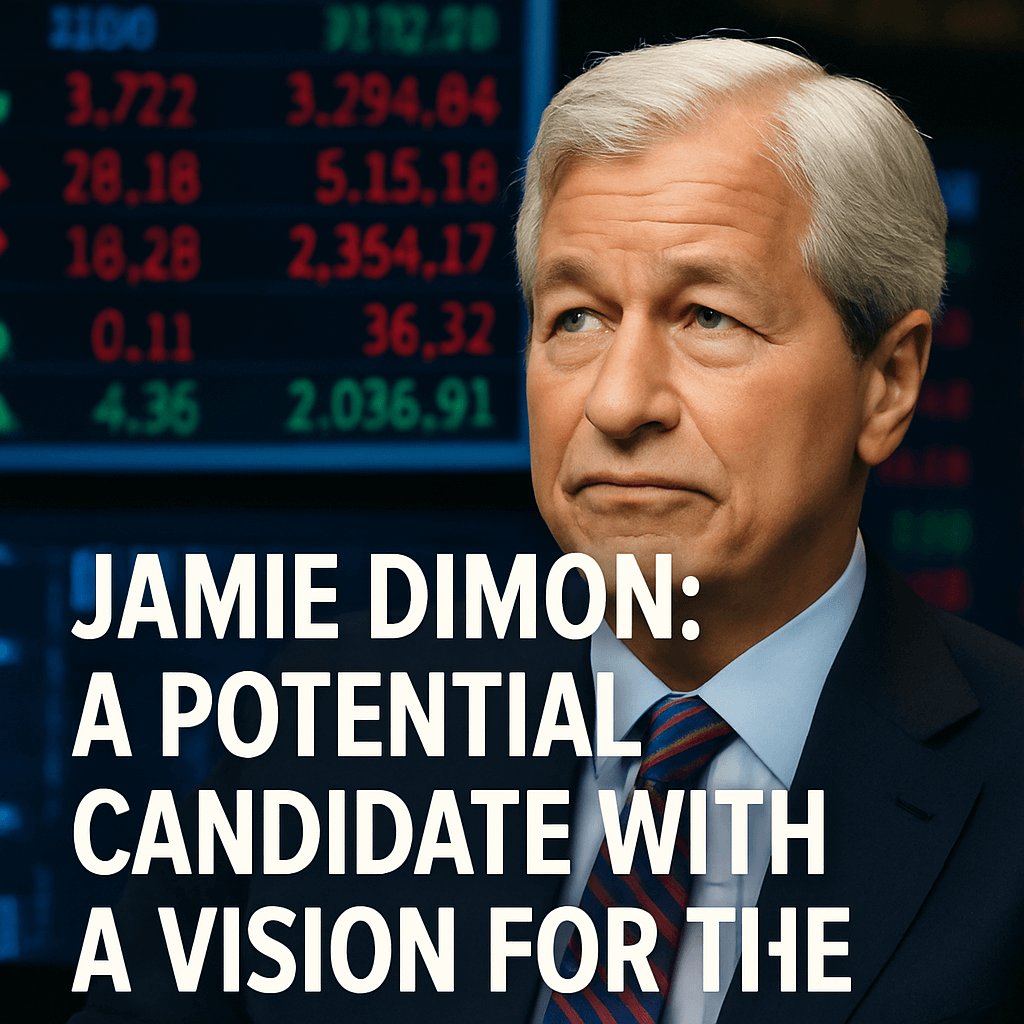Jamie Dimon: A Potential Candidate with a Vision for the Future

What do the names H. Ross Perot, Lee Iacocca, Bob Iger, Mark Cuban, Mike Bloomberg, Carly Fiorina, Doug Burgum, Andrew Yang, Tom Styer, Herman Cain, and Howard Schultz have in common? They are all prominent business figures who have either run for office or contemplated a presidential candidacy. However, one notable name is conspicuously absent from this list: Jamie Dimon, the CEO of JPMorgan Chase.
While the aforementioned individuals bring diverse leadership skills from various sectors, Dimon is uniquely positioned as a national figure synonymous with stability in the American banking system throughout the turbulence of the 21st century. His insights were brought to the forefront during a recent interview with CNBC at the Reagan National Economic Forum, where he delivered a forthright discourse spanning topics like public policy, foreign affairs, financial markets, and the precarious nature of U.S. democracy.
The Fragility of Democracy: Dimon’s Perspective
Dimon, known for his candid and often provocative statements, expressed concerns over what he termed “the enemy within,” referencing domestic divisions that threaten the fabric of American democracy. This declaration elicited significant media attention, amplifying discussions surrounding the challenges the U.S. faces today.
When asked if he would consider a public service role, he replied, “If I thought I could really win, which I don’t think I could.” This comment left listeners pondering the realistic potential of Dimon as a presidential candidate, considering his established reputation and public image.
A Proven Leader Amidst Economic Challenges
Dimon’s business leadership stands in stark contrast to that of former President Donald Trump. Despite Trump’s self-portrayal as a business tycoon, his record includes multiple bankruptcies and a business trajectory fraught with instability. In comparison, Dimon has cultivated a robust legacy at JPMorgan Chase since taking the helm in December 2005, where the stock price has surged approximately 1,100%. For context, during the same period, the SPDR S&P 500 ETF experienced a rise of only about 600%, and the S&P Bank ETF is nearly flat at around 2.5% growth.
Dimon’s track record includes pivotal moments where his leadership was essential, notably during the 1998 Long Term Capital Management crisis where a consortium of 14 major banks, under his guidance, intervened with a $3.6 billion capital infusion to prevent market disruption. His foresight in 2007 when he predicted the comprehensive fallout from subprime mortgage failures further solidified his reputation as a leader capable of navigating complex financial landscapes.
Balancing Pragmatism with a Social Vision
The discussion around Dimon extends beyond just his professional reputation; it also encapsulates his political outlook. Unlike Trump, who shifted allegiances, Dimon identifies as a long-time Democrat, embodying a centrist ideology. He advocates for a balanced approach combining social responsibility with fiscal discipline. His potential policies as a presidential candidate may include:
- Advocating for a streamlined government with a focus on efficiency.
- Reforming tax structures, including eliminating certain loopholes.
- Strengthening public education and investing in urban infrastructure.
- Promoting international security alliances while recalibrating trade policies to safeguard U.S. interests.
- Defending voting rights amid increasing polarization.
Dimon’s Global Perspective on Trade and Security
In light of current global events, such as the ongoing conflict in Ukraine, Dimon has expressed the necessity for the U.S. to actively engage in global democracy battles, asserting that disengagement is not an option. He emphasizes the importance of rebuilding supply chains in collaboration with allies, particularly in light of geopolitical shifts involving China and Russia.
His 2023 letter outlined a clear directive: America must take an active stance in geopolitical matters, not only for its national security but for the preservation of democratic values worldwide. This aligns with his critique of the previous administration’s attitudes toward NATO and its economic strategies.
The Interplay Between Business and Politics
Dimon’s potential entry into the political arena raises critical discussions about the relationship between business success and political leadership. Historically, American culture has revered business achievement, and Dimon’s trajectory appears to align with the public’s admiration for responsible capitalism. His experiences navigating corporate challenges and crises provide a strong foundation for a potential bid for office, diverging from politicians who often lack real-world business experience.
Challenges Ahead and Public Perception
Despite his extensive credentials, challenges loom on the horizon. Critics from both ends of the political spectrum question his alignment with more progressive policies or his perceived delay in vocally opposing certain political stances during Trump’s presidency. However, Dimon’s pragmatic voice, focused on bipartisanship and reconciliation, positions him as a candidate capable of reaching across the aisle to unify a divided electorate.
Conclusion: Dimon’s Future in Politics
As discussions around potential presidential candidates for 2028 gain traction, Jamie Dimon emerges as a figure who could bridge gaps between the business community and political leadership. His wealth of experience, combined with a philosophy rooted in fiscal responsibility and social consciousness, could provide a welcome alternative for a Democratic Party seeking rejuvenation in leadership.
While the prospect of Dimon entering the political fray remains uncertain, his longstanding commitment to public service and economic stability offers a model of governance that prioritizes the well-being of the American populace.
Future Polling and Dimon’s Viability
Polling data also indicates a growing discontent with current leadership; recent surveys show only 16% of voters view Democrats as having strong leadership. This sentiment underscores the opportunity for Dimon to emerge as a fresh, viable candidate capable of revitalizing the party’s image and operations.
As the political landscape evolves, observing how corporate leaders like Dimon navigate this shift can provide valuable insights into the future of American democracy and governance.
Source: fortune